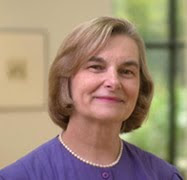Saturday, November 5, 2011
Reflections on the trip
"Only a broken heart is complete. Only a slanted ladder is straight."
There are so many stories, so many narrative perspectives crowding my consciousness. Both of our guides were great story-tellers. Yuval, our Israeli guide, also a journalist, had special gifts. An autodidact with comprehensive, encyclopedic knowledge of history, literature, music, religion--his fluency was accompanied by an ability to find and use poetry. He speaks and writes with equal facility in Hebrew and English and he also conducts tours in French.
Yuval told us stories of his family and especially memorable was the story of his grandfather who made his way as a 14 year old from Romania-- escaping as the rest of his family did not. He had with him a leather coat and a diamond ring. He arrived in Israel with only the leather coat and a share in a toothbrush with a traveling companion. He was put in a detention camp for a year and then spent the rest of his life in a trade. I wish i could remember all the details-- including Yuval's returning to Romania, finding the family home, wishing that it might be returned or at least not occupied, and having his wish realized as the house was never again used for living quarters.
He and several of his colleagues, including Asiz Abu Sarah write for an online magazine 972mag.com.
Yuval told us the story of the development of modern Hebrew thanks to the efforts of Ben-Yehuda who created new words using ancient Hebrew. The work of Ben-Yehuda insured that the language of the modern state of Israel was Hebrew, rather than the other possibilities considered, i.e. Yiddish or German. I hope I am rembering the essentials of Yuval's account. It was the conversation around the significance of the Dead Sea scrolls that initiated the telling of this story.
Although clearly an advocate for peace and an outspoken opponent of injustices perpetrated by the government that cause the Palestinians to suffer, Yuval was an articulate and passionate spokesman of the Israeli narrative. He spoke about Israel's history as a semi-nomadic and often persecuted people. His own family knew the horrors of the holocaust. He understood the deepest desire in the hearts of his people for a home, for the land long promised. He spoke feelingly about understanding the fear that is the roots of what appear as extraordinary, even oppressive measures to ensure security.
He acknowledged that he and many other Israelis are disturbed by the injustices of the occupation but rarely do they speak out against it or attempt to end it. Each creates or recreates the narrative that works and each shapes a reality for himself/ herself.
Husam and Asiz spoke from the Palestinian perspective. Asiz suggested that the Palestinians need a galvanizing text that will speak for them to the rest of the world-- something akin to Uncle Tom's Cabin accessible and available and impossible not to understand. The Palestinians as we heard from several people are not unified in their support of a single leader. They need to work to keep their profile shaped to be something other than it so often is. That was one explanation offered as to the motivation in part of Abbas' request to the UN. While that event happened before our trip, the UNESCO took place as we were in our last traveling days.
I am afraid that the consequences of withdrawal of American support as a result of the recognition afforded Palestine will cause more suffering to those who least deserve to suffer more.
I have said elsewhere how oppressive I found the restrictions on freedom of movement. Such restrictions make 10 minute transits into hour long trips. The looming wall and the 523 checkpoints are almost everywhere evident.
The impact of the restrictions includes the lack of opportunity to assemble in any kind of mass nonviolent protests. Someone told us that the IDF doesnt think too much of Gandhi and his nonviolent strategies to effect change. Thus,when people from Zilwan, aka the City of David, gather in the tent to protest the demolition orders for their homes in which they have lived 12 generations, they are dispersed and arrested. One of the residents who spoke to us explained that his two elder sons had been imprisoned for demonstrating in protest ( in two different prisons) and his youngest son who was 11 years old had been arrested 8 times.
Husam spoke of the distinction between structural violence-- a strategy exercised to systematically make rights into priviliges and personal violence-- exemplified in the young people who throw stones-- not aiming to hurt or even hit but rather to protest the oppression. (When the frustration escalates and there is no change or relief, the condition is ripe for desperation-- and this makes possible an individual's considering the last resort of such acts as suicide bombing.)
When someone throws 10,000 stones and never hits a single soldier, might this be considered a non- violence that confronts rather than avoids; a non- violence that expresses opposition to oppression and speaks/acts out against it.
Subscribe to:
Post Comments (Atom)

No comments:
Post a Comment